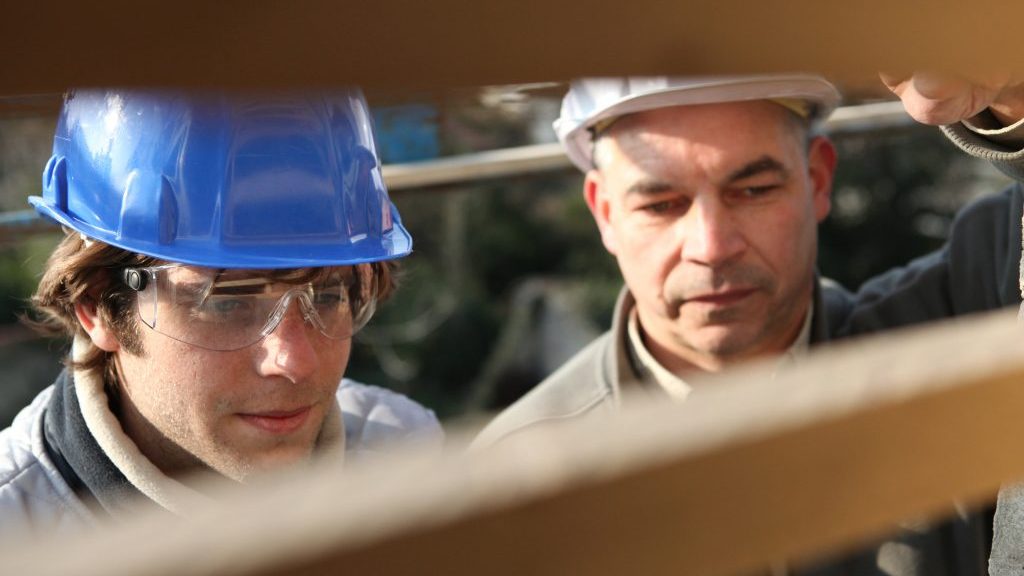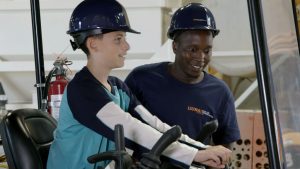The Canadian Institute of Plumbing and Heating (CIPH) and the Mechanical Contractors Association of Canada (MCAC) put forward a pre-budget submission to the federal government asking for increased funding for programs and promotion of apprenticeships and careers the skilled trades, particularly those that play an important role in adapting to climate change.
“It is very clear that climate change is becoming more and more of a concern for citizens in Canada and an election is looming, so we have to find pragmatic ways to deal with climate change,” said MCAC CEO Pierre Boucher, adding 17 per cent of Canada’s greenhouse gas emissions come from buildings.
“We have to address that. By introducing new technology our buildings will perform better. For that to happen you’ll need the developers of that technology to be ready and a lot of our members are doing that. You have to have the skills force to integrate that into the built environment.”
According to the submission, Addressing Climate Change with Skilled Trades and New Technologies, an important part of addressing climate change is ensuring Canada has an adequate supply of skilled tradespeople who are regularly updating their skills and certifications.
Our job is to make sure going forward there are enough people to understand how to install these products,
— Ralph Suppa
Canadian Institute of Plumbing and Heating
“In the face of the climate emergency, it will be important to recognize that some trades are more important to prioritize and incentivize for the impacts they have on climate change mitigation and adaptation,” stated the report. “Our members are constantly innovating through research and development and commercializing new technologies that improve efficiency and limit volumes of water used. Better skilled trades availability will significantly improve market access for these products.”
The groups are recommending the government increase the investment for the skilled trades promotion program from $6 million over two years to $6 million per year over the next five years for a total investment of $30 million. The additional funding would allow for the promotion program to scale up after development and be more widely disseminated, the report indicates.
“If it’s going to happen it needs to be done properly,” said Ralph Suppa, president and general manager of CIPH. “If you look at the old buildings we have in this country, a lot of them need to be retrofitted to more efficient appliances and equipment and that will help reduce greenhouse gas emissions and help the government with their climate action plan.”
CIPH and MCAC are also recommending that the federal government invest in apprenticeship training and completion incentives to encourage the replacement of the skilled trade workforce. They suggest doubling the annual maximum tax credit per year, per apprentice in the Apprenticeship Job Creation Tax Credit from the current level of $2,000 to $4,000 and that the government consider increasing the proportion of salaries that are eligible for the tax credit from 10 to 20 per cent.
“We know there is a shortage of skilled labour out there and for us to get the government’s attention we tied it to climate change because there is a lot of innovation happening right now in terms of reducing greenhouse gas emissions and our members products have become very innovative and intricate,” added Suppa. “Our job is to make sure going forward there are enough people to understand how to install these products.”
While the government has recently made investments in apprenticeship loans and grants and completion incentives, it is also important for the government to expand incentives for people choosing the trades, particularly Red Seal occupations, and provide opportunities for employers to take on new apprentices, especially smaller businesses, indicates the submission.
“We have a challenge,” explained Boucher. “A lot of people will be retiring soon so we have to replace those people with new people who want to enter our industry and that our industry will be able to train. For that to happen we are looking for new instruments, through tax incentives or other means of financing…we need to facilitate the process by which they can become certified tradespeople to meet the challenge.”
The groups recognize that the incentives recommended may be costly.
“It’s a cost,” said Boucher. “But in our mind its more of an investment in the future of our people to be able to build in a more sustainable way and train the people needed.”
Follow Angela Gismondi on Twitter @DCN_Angela.











Recent Comments
comments for this post are closed